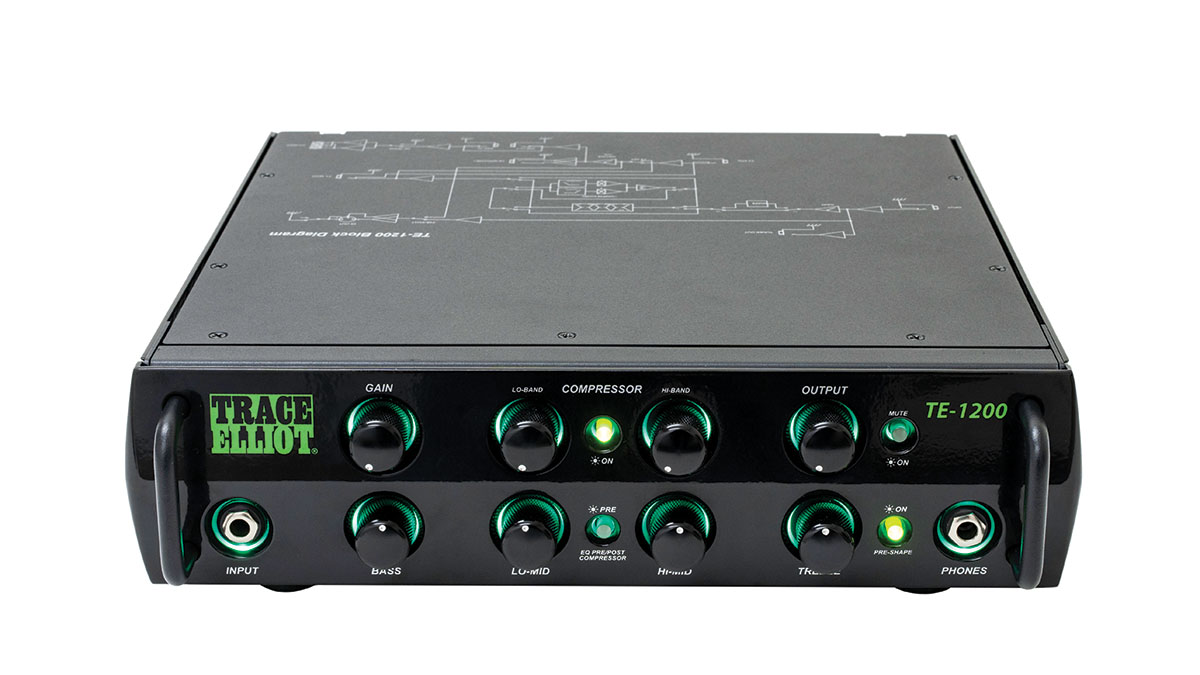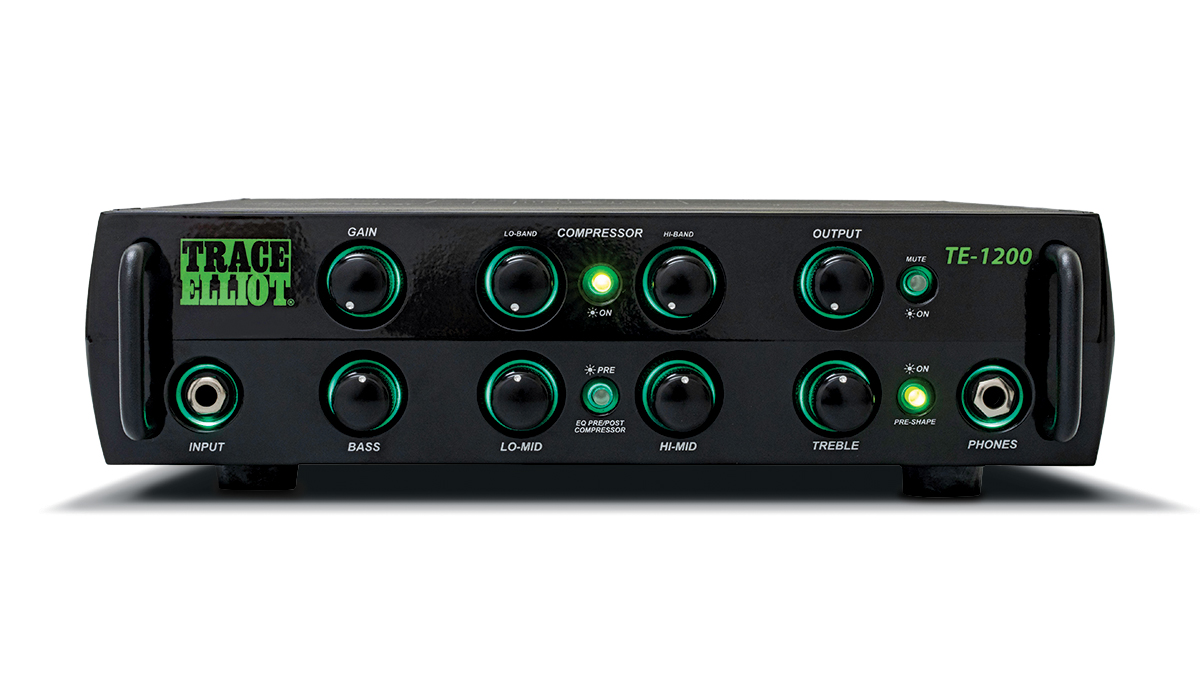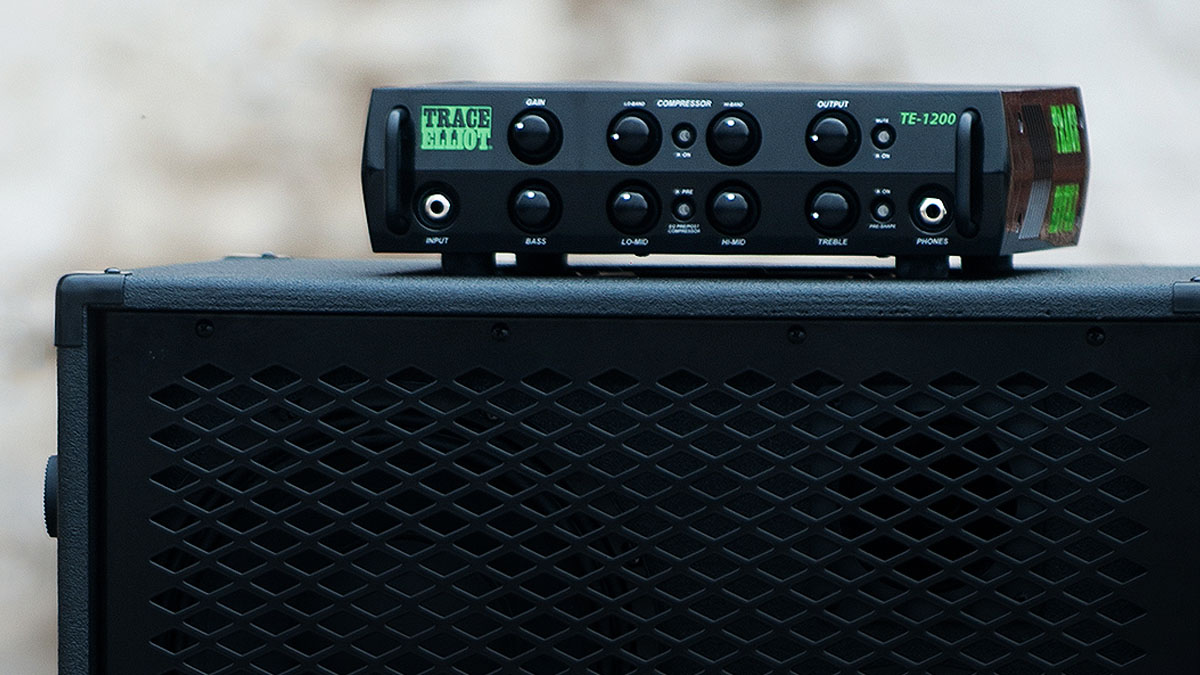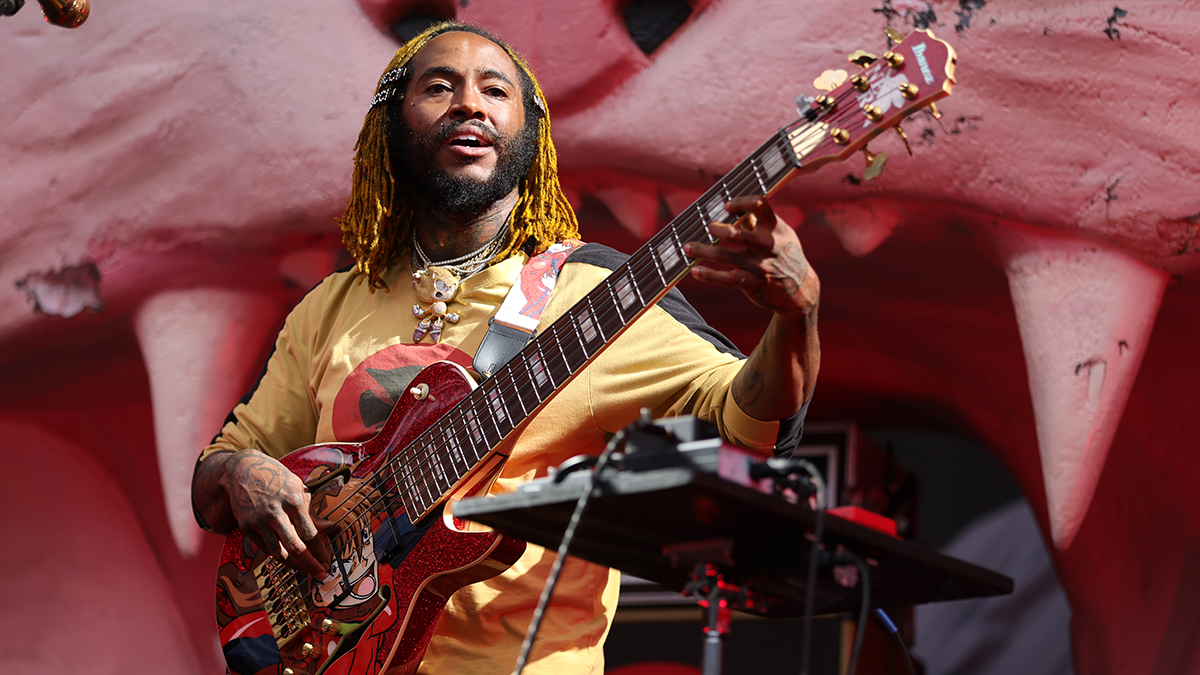Guitar World Verdict
A great-sounding amp that can handle any venue size with ease.
Pros
- +
Huge power.
- +
Clean tone.
- +
Compact.
Cons
- -
Somewhat limited EQ.
You can trust Guitar World
Trace Elliot has been synonymous with high-end bass amps for decades, used by bass luminaries such as Mark King and John Entwistle. My own first issue of
Bass Player had a glowing review of a Trace amp way back in 1996.
Their resurgence in recent years has been thanks to their ELF micro series of ultra-light amps and cabinets, and with the TE-1200 they’ve made a return to concert-level power while staying focused on portablility.
The TE-1200 is impressive straight out of the box. The unit feels dense, and the rack handles on the face and unique side panels set it apart visually from many of the other amps in this category. The backlit knobs are evenly spaced and turn smoothly with center detents on the EQ controls, clearly designed to make hassle-free changes mid-gig, and the rear panel boasts all the output options you could ask for, including MIDI in and out and a USB out for recording.
Small yet extremely solid, it won’t slide even at high volume, and the substantial feet are designed to interlock with the new line of Trace Pro cabinets. This isn’t a micro amp: At 11.5 pounds (5.2 kilos), it’s not meant to slide into your gigbag. What it is is a very compact, full-featured bass amplifier.
The TE-1200 is rated at 1200 watts continuous RMS, meaning you’ll get consistent, high power output which, when coupled with the right cabinets, should cover any size venue you can play.

An included footswitch lets you toggle several of the amp’s features (pre-shape, compressor, mute, effects loop), and Trace also includes both a bag and rack ears to fit your preferred amp setup.
The amp is dead silent, and even at high volume there’s no hiss. This also means you can play or practice at low volume with no issues. Small enough to easily fit on top of a 1x12, the TE-1200 is equally at home at a coffee shop gig as it is on a large stage—just be careful not to overpower your lower-wattage cabs.
All the latest guitar news, interviews, lessons, reviews, deals and more, direct to your inbox!
What the clarity does, however, is allow you to get the most out of any effects you put in front of it. Everything from distortion to multitap delays sound great
The flat tone is beautiful: clean and articulate with enough warmth to keep it from sounding sterile or too hi-fi. The EQ section is simple but effective, with a four-band equalizer, a two-band compressor, and a pre-shape switch.
The compressor works well: its effects are noticeable without being heavy-handed, and an optional button allows you to compress pre or post EQ. I generally don’t use compression live, but found myself really enjoying using a subtle to moderate amount of pre-EQ compression, as it stayed musical and didn’t alter the tone.
The pre-shape engages an EQ curve designed to bring out some of the classic Trace sound, and does just that by boosting the lows and highs with a slight mid cut at particular frequencies to bring out a setting that sounds scooped but not hollow. It can be used to make a tight slap tone that should cut through any mix, but also works great when using a more aggressive fingerstyle for heavier music.
While the simplified EQ is reminiscent of the concert heads of old, this could be a sticking point for knob-tweakers who want more detailed control of their EQ points or multiple channels to switch between.
This is an amp that you bring your tone to, rather than using it to completely color your tone. That’s not to say the controls are lacking, as the frequency points of the EQ boosts/cuts are great and you can dial in punchy slap tones to mid-focused fingerstyle, all with immediate responsiveness.

It should go without saying, but this amp gets loud. After all, 1200 watts into a 4-ohm load will be more than enough output for most, and the amp still pumps out a considerable amount of power into a single 8-ohm speaker at over 800 watts. The amp stays clean throughout at any volume setting, never breaking up or faltering.
The gain knob is meant to adjust for your instrument’s output alone, not double as an overdrive. There’s no attempt at tube emulation or settings for a gritty sound, so if these are features that you need in an amp, you’re better off elsewhere. What the clarity does, however, is allow you to get the most out of any effects you put in front of it. Everything from distortion to multitap delay pedals sound great through it, without having to repeatedly adjust the amp to resolve EQ conflicts.
The TE-1200 is a welcome addition to the new Trace Elliot lineup. They’ve taken the advances in lightweight tech they first applied to the ELF line and used them to make a compact yet impressively powerful new amp. We recommend it.
Specs
- PRICE: $999.99
- MADE IN: China
- POWER: 1200 watts RMS
- FEATURES: 4-ohm minimum load, worldwide AC voltage selector
- FRONT PANEL: Built-in Lo/Hi-Band compressors with defeat switch (footswitchable), pre-shape switch (footswitchable), 4-band equalization, EQ Pre/Post compressor switch, mute/tune switch (footswitchable) input gain and output level controls, headphone jack
- REAR PANEL: Pre and post balanced XLR outputs with ground lift, noiseless buffered effects loop with level switch (footswitchable), preamp output/power amp input 1V RMS master/slave loop, buffered tuner/dry feed jack, MIDI In and Out, USB recording output interface, dual Neutrik combination Speakon/phone speaker output jacks. A four-button MIDI footswitch with 25-foot cable, padded gigbag, and optional 1.5U rackmount kit included
- WEIGHT: 11.5 lbs
- CONTACT: Trace Elliot

